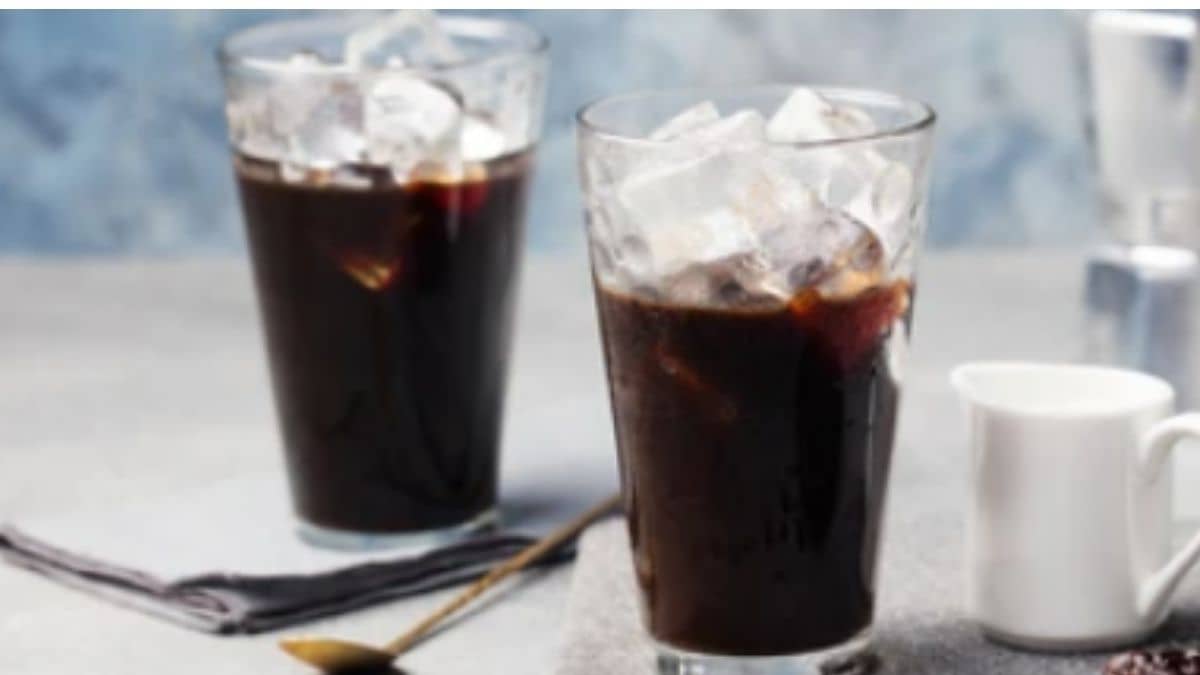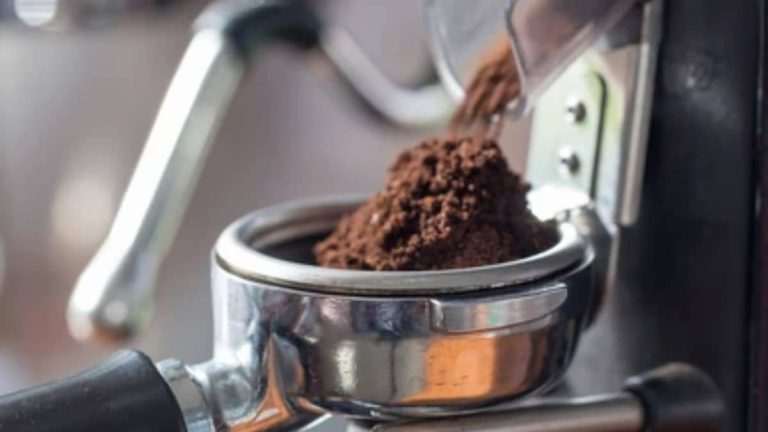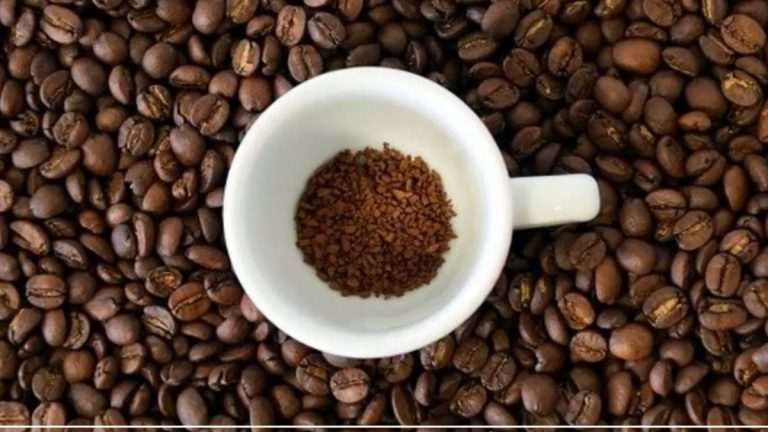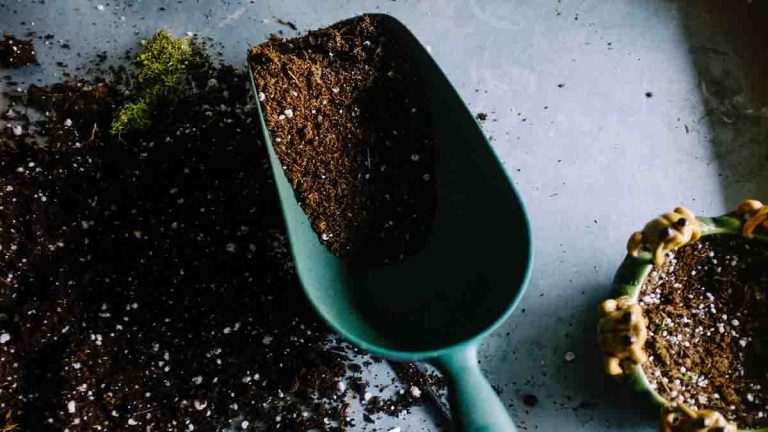How long is iced coffee good for?
If you frequent coffee shops, you’ve almost certainly heard of cold brew coffee. Perhaps you’ve even attempted to make a cuppa or purchase a bottle. You may be wondering how long is iced coffee good for?
If you enjoy iced coffee, you will drink it regardless of the weather. If you had to drink hot coffee, you’d rather put on a glove. It’s common knowledge that brewed coffee doesn’t last forever, but when does it go wrong?
However, you may forget it’s in the fridge or the cup holder of your car.
We want Above Average Coffee, which means you should brew fresh coffee whenever you want.
But this is real life, and occasionally you end up with more coffee in the pot than you anticipated; perhaps you had a group of people around, and none of them drank as much coffee as you planned.
Is it okay to drink it after you’ve finished your shift? Let us find out together!
Authentic iced coffee
Table of Contents
To make iced coffee linger longer, it’s brewed a little differently. You’ll be alright if you get an iced coffee from your favorite coffee shop and keep it in the fridge for the next day. Your coffee will last a few days, at most three.
Can you drink 4-day old iced coffee?

No. Your iced coffee shouldn’t last up to 4 days. However, you may double-check if you could give it a try. If you plan to drink it later, make sure it goes immediately into the fridge. Please don’t leave it on the counter or anywhere like that.
We should point out that if you leave your coffee elsewhere, such as your car, and wish to drink it after your shift, you should first check the temperature. Please don’t drink it if it is warmer than 40 degrees in your car or 30 degrees outside (your car is usually a little warmer inside).
So, if you’re going to store your iced coffee in the fridge, we recommend keeping the coffee and milk separate and mixing them separately for each serving.
Aside from the time, another consideration is to store the coffee in an airtight container or bottle to avoid absorbing the scents of other foods in your refrigerator.
After a few hours, mold, germs, and other disgusting stuff grew. After working an 8 to 10-hour shift, stomach discomfort is hardly worth it.
Money-Saving Things You Can Do With Leftover Coffee
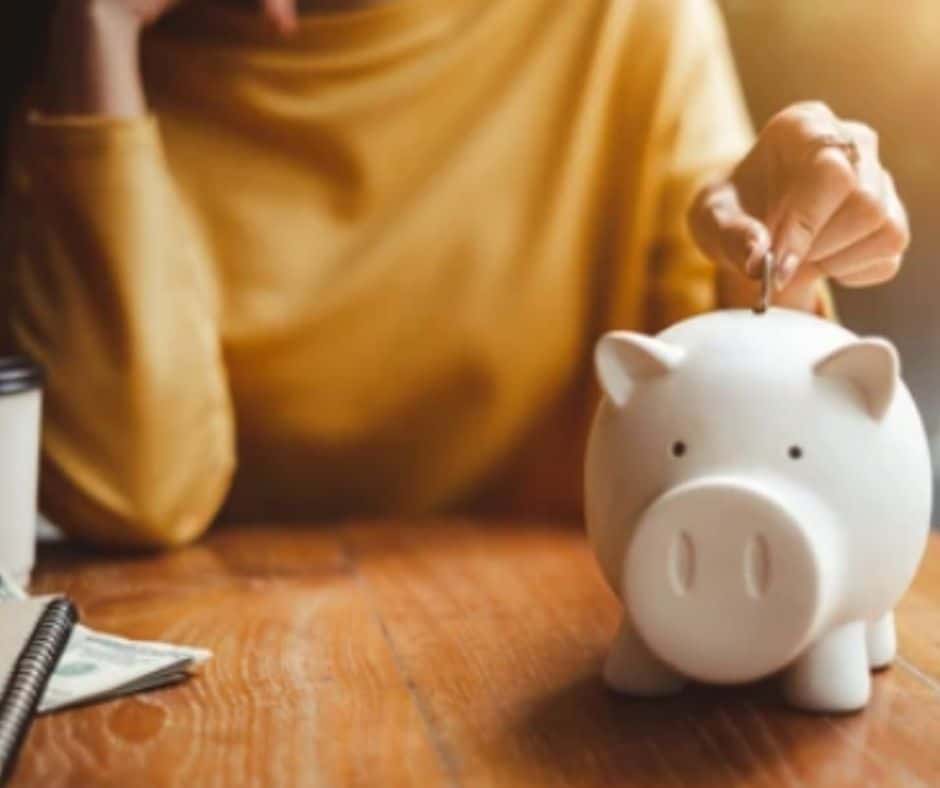
The majority of individuals who make coffee at home use a machine that makes ten to twelve cups of coffee. Making a large pot is quicker, and any leftovers are usually dumped down the drain. Because there’s nothing wrong with this coffee, it can easily be repurposed, potentially saving you a lot of money in the long run.
One of the best things about utilizing leftover coffee in recipes is that it can be used in savory and sweet foods, making it exceptionally adaptable.
- Brownies are number one.
Who doesn’t enjoy a good brownie? Simply add some leftover coffee to your favorite brownie recipe to make a mocha brownie. Merely use the leftover coffee to replace any liquids.
2. Scoop of Ice Cream
You may create your own coffee ice cream from scratch or pour leftover cold coffee over a large dish of store-bought ice cream. The greatest flavors are chocolate and vanilla, but any flavor will do!
3. Specialty Cocktails
Do you frequently visit your neighborhood coffee shop to purchase a specialized coffee beverage? Specialty beverages are pricey, despite their deliciousness. You can now manufacture your own pennies at home!
4. Your Backyard
Every few weeks or so, pour cooled leftover coffee over your tomatoes or any other plants that thrive in acidic soil.
5. Cleaning is number seven.
Coffee’s acid is an excellent cleaning agent, making it ideal for cleaning difficult-to-clean surfaces, such as grease.
It may be used to clean your dishes, grill, floors, and other surfaces. You may get rid of odors by pouring leftover coffee down your garbage disposal.
6. Flavor Enhancement
Coffee can assist whether you want to add extra flavor to your food or mix up some of your typical dishes.
Add leftover coffee to your favorite gravy recipe or to slow cooker meals for extra richness. Or how about a slice of chocolate cake with coffee frosting? Or how about a coffee pudding? Or how about some coffee Jell-O? It goes on and on.
How long does iced coffee last in the refrigerator?

The concentrated brewed coffee lasts about two weeks in the fridge, while an iced coffee without extra milk or sugar lasts about a week when kept in an airtight bottle at or below 40 degrees Fahrenheit.
However, we do not advocate drinking iced coffee older than 3-4 days because it will have a harsher and more acidic flavor.
Is 2-day old iced coffee still good?
Yes, it is; no doubt, ice cubes dilute your iced coffee to a large extent, therefore if you want a solid iced coffee, we propose using these frozen coffee cubes in place of ice cubes, as they will increase the flavor and aroma of your drink even when they melt.
Can you drink leftover coffee?
Because most conventional coffee pots are far too large for one person to drink in a single morning, it’s destined to happen.
The answer turns out to be more nuanced than we anticipated, depending on factors such as the age of the coffee and what was added to it. Here are some things to think about:
- What exactly is in the coffee?
You’re out of luck if you’ve already added milk and left the coffee on the counter. Drinking milk that has been left out for more than two hours without being refrigerated is never a good idea, even if it’s blended with coffee.
- How old is this coffee pot?
A pot of coffee has two major turning points in its existence. One happens after 30 minutes when the coffee has cooled and lost its flavor. After around four hours, the oils degrade, and the coffee gets more acidic. Unfortunately, reheating coffee in the microwave will not undo these flavor changes. On the other hand, drinking hours-old coffee isn’t harmful, even if it makes baristas squirm. However, I wouldn’t drink day-old coffee because of the risk of mold growth.
- Are you able to use a microwave?
If you’re going to risk recycling a cup of coffee with milk, at the very least try to reduce the risk of bacteria by microwaving it. However, because it isn’t a perfect solution, you should leave your two-hour-old latte alone.
Overall, the answer to the issue of how long your coffee will last depends on your priorities. Hours-old coffee would suffice if you merely need a caffeine boost, but you shouldn’t wait more than a day — or two hours if you’re dealing with unrefrigerated dairy. If you’re a coffee connoisseur who insists on just drinking the best brews, your selections are more limited, and you’re better off creating a new pot and drinking it within the first half-hour.
Can old coffee make you sick?
No, in the vast majority of circumstances, drinking old coffee beans or ground coffee will not put you in any danger of falling ill. On the other hand, old coffee brews will not taste as delicious as fresh coffee brews and may even taste stale or unpleasant. This general rule of thumb, however, has a few notable outliers.
Under certain conditions, coffee that has not been properly stored in a firmly sealed container may develop a sour taste. Even if the coffee is prepared with boiling water, if the beans or grinds are not adequately packaged, exposed to water, or have developed mold or other growths, there is a substantial risk of being ill.
If you run out of coffee and then discover that you have some old beans or grinds hidden away in your cupboards, brewing coffee from your backstock is unlikely to cause any problems. However, thoroughly inspect the container and grounds before brewing and drinking (or beans).
How long will brewed coffee last in the refrigerator?
The concentrated brewed coffee lasts about two weeks in the fridge, while an iced coffee without extra milk or sugar lasts about a week when kept in an airtight bottle at or below 40 degrees Fahrenheit.
However, we do not advocate drinking iced coffee older than 3-4 days because it will have a harsher and more acidic flavor.
Furthermore, iced coffee with milk has a lower shelf life than iced coffee without milk. It’s worth noting that a food item made up of diverse ingredients has the same shelf life as the ingredient with the lowest shelf life.
As opposed to coffee, water, or sugar, milk has the shortest shelf life in an iced coffee with milk. As a result, the coffee will have the same shelf life as milk.
As a result, we recommend that you consume your iced coffee with milk within two days to appreciate its flavor fully.
It’s also worth noting that if you keep your iced coffee in the fridge, you should avoid adding sugar because sugar in coffee creates a suitable environment for bacteria to flourish, which can shorten the iced coffee’s shelf life.
In the case of bottled iced coffee, the best by, use-by, or expiration date inscribed on the bottle should be taken into account.
Increasing the Shelf Life of Cold Brew
The most straightforward approach to keep cold brew coffee fresh is to store it properly. It can be controlled in glass or plastic, but glass is preferable.
Because plastic is permeable, essential tastes can oxidize more quickly. Furthermore, some of the compounds present in plastic impact the taste of coffee. When using glass, no chemicals interact with flavor qualities, and glass containers may be sealed more tightly. For fridge storage, mason jars or coffee press beakers are excellent choices.
Is it possible to freeze iced coffee?
When frozen in cubes in the freezer, iced coffee can last for weeks. If you want to keep your made iced coffee for an extended period, consider freezing it.
Without a doubt, ice cubes will dilute your iced coffee significantly; therefore, if you want a robust iced coffee, we recommend avoiding them.
What Causes Bitterness in Coffee?
You should be aware that oxidation continues after your coffee has been brewed.
When you leave your coffee out too long, the reaction between hydrogen and oxygen raises the pH level, making the coffee bitter or “stale.”
It is why you should never leave your coffee maker unattended for more than a few minutes.
Serve the coffee into a mug, a serving jug, or a thermos as soon as it’s ready.
Bitterness can also be caused by over-extraction. Make sure your grind size isn’t too small, and your coffee isn’t brewed for too long to avoid this.
You are allowing your coffee to sit in the press after brewing is the worst thing you can do, especially if you’re using a French press.
Even after you’ve squeezed the plunger down, the coffee will brew for as long as it’s in the press, becoming incredibly bitter in a matter of minutes.
Keep in mind that stale grounds result in stale coffee. Coffee, like any other food, does not last indefinitely.
The more oxidized your coffee grounds are, the more they’ve been exposed to it. Even after brewing, the coffee produced from old grounds will taste stale.
Coffee does not spoil in the same way that milk does. The absence of scent rather than the presence of a decaying odor characterizes old coffee grinds.
If that’s what you’ve been wondering, stale coffee isn’t unsafe to consume, but it is unpleasant. Unless you’ve added milk, in which case you shouldn’t drink it after two hours.
Alternatives to Keeping Brewed Coffee Refrigerated
If you don’t want to keep your coffee in the fridge, you have a few alternative options.
1. Remove it from the counter
A cup of black coffee was left out on the counter.
Yes, you may keep black coffee on the counter, in a carafe, or a coffee pot overnight, and it will be just fine the next day.
This is the option most people prefer. While it may irritate some baristas, I don’t believe it significantly alters the flavor.
2. Make ice cubes out of it.
Another method is to freeze your brewed coffee by the mug; however, freezing it does not improve the flavor.
However, you may make coffee-flavored ice cubes by freezing your coffee in an ice cube tray. On a hot day, these are delicious by themselves, or you can add iced coffee cubes to your iced coffee for an added kick.
Although it is not the most economical approach, it can be entertaining to attempt.
However, if you’re using instant coffee, You shouldn’t worry about preserving it in any way. It’s only a few pence in a mug, and when you’re done, dump it away.
3. Make use of a Thermos
What better way to use leftover coffee than in a thermos? Some thermoses can keep contents hot for up to 12 hours, so if you make too much coffee, you can save it for later and still enjoy it hot.
It won’t taste as wonderful as if you made it right away, but it will taste better than if you left it in the fridge and then reheat it quickly!
In the fridge, how long do coffee grounds last?
Coffee grounds aren’t the best thing to keep in the fridge because they can absorb other odors from the fridge if they’re not adequately packed. When you store your coffee grinds and beans in a relaxed, dry environment, they will last longer. If possible, keep your coffee in an airtight container, but even a bag with a peg in the top would suffice.
Is It True That Coffee Goes Bad In The Fridge?
When coffee is kept in the fridge, it turns stale. Even cold-brewed and stored in the refrigerator goes stale after about 2 weeks, resulting in a coffee that tastes like a cheap diner coffee.
Will it, however, deteriorate to the point of being moldy? Your coffee will stay in the fridge for a long time before mold appears if all of your coffee equipment is clean and sanitized.
The expiration date would be substantially shorter if it were created in a French press rinsed after each use rather than thoroughly cleaned. Full disclosure is how most tend their French Press, and it works perfectly.
Conclusion
Fresh coffee tastes better no matter what style of coffee maker you use, whether it’s drip coffee, french press, pour-over, or espresso.
The whole point of visiting a café is having a barista make you a fresh cup of coffee using a large, expensive grinder.
But if you’ve been caught making way more coffee than you can drink, We do hope this post has been of assistance!

